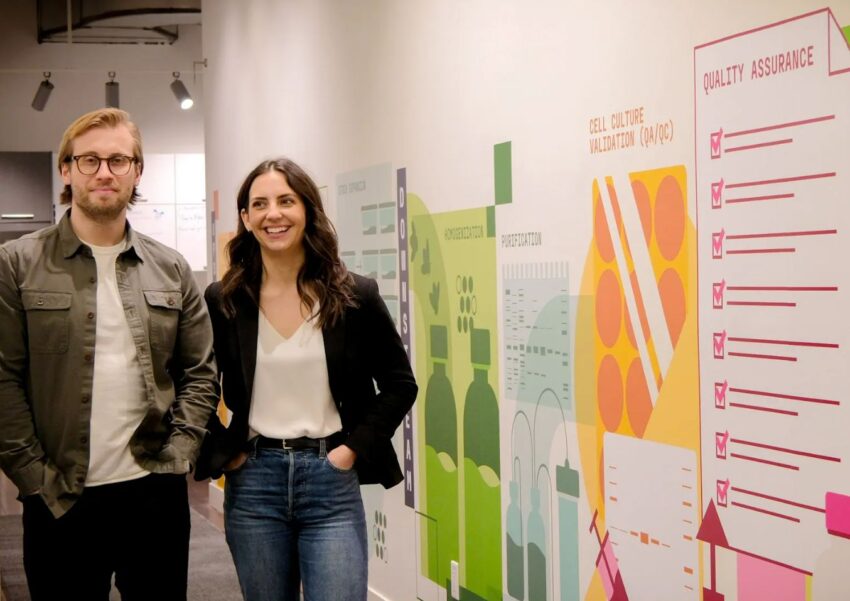[Disclosure: AFN’s parent company, AgFunder, is an investor in Future Fields via the 2019 GROW impact accelerator and its alternative protein fund.]
- Canadian startup Future Fields has raised $11.2 million in a seed extension round to scale up fruit flies as production vehicles for high-value recombinant proteins.
- Recombinant proteins are produced through genetic engineering techniques, whereby the DNA sequence encoding a target protein is inserted into a host organism, such as bacteria or yeast (or here, fruit flies), to produce the protein. Examples of high-value recombinant proteins include growth factors such as FGF2, which can be used in growth media for cultivated meat.
- Bee Partners increased its equity stake, while Toyota Ventures’ investment brings in expertise in large-scale manufacturing, said the startup, which has raised $13.4 million to date.
- Other investors in the round include Builders VC, AgFunder, Amplify Capital, Milad Alucozai of BoxOne Ventures, Green Circle Foodtech, Siddhi Capital and Climate Capital.
- Future Fields will use the funding to hire key personnel and build out a facility next to its HQ in Edmonton, producing recombinant proteins at kilogram scale in 10,000 square feet of manufacturing space.
Why it matters
Engineered microbes such as yeast and E coli have been the workhorses of recombinant protein expression for decades, says Future Fields. But precision fermentation is capital-intensive, energy-intensive, and costly to operate.
Fruit flies are pretty low maintenance, requiring far less water and food and low-budget accommodation. That’s especially true when compared to the expensive stainless steel bioreactors required for precision fermentation, says Future Fields co-founder Matt Anderson Baron.
“We’ve passed a tipping point where it’s the scaling, not creating, of biotech-based products that is the fundamental hurdle for founders, companies, and entire industries. Our approach is 30 times faster than tanks and more or less infinitely scalable with minimal investment; this is how we’ve already commercialized our first few products.
“As we unlock more proteins, we can scale production capacity while continuing to service over 60 companies in cellular agriculture and beyond.”
Key ingredients from Future Fields include growth factors for cultivated meat growth media, but it is also adding a new suite of human recombinant protein products created by its patented EntoEngine targeting medical research and biopharmaceuticals.
Future Fields takes the gene for the protein it wants fruit flies to express and inserts it into the genome at the embryo stage. When the fly grows up, it secretes the protein from its cells (the insect line is then bred to build up stocks so this process doesn’t have to be constantly repeated). Near the end of their lifespan, the flies are humanely harvested and the resulting proteins are purified.
Aside from their reduced production costs and lower environmental footprint, said Anderson-Baron, fruit flies also have superior machinery vs bacteria or yeast cells to facilitate complex protein production.





